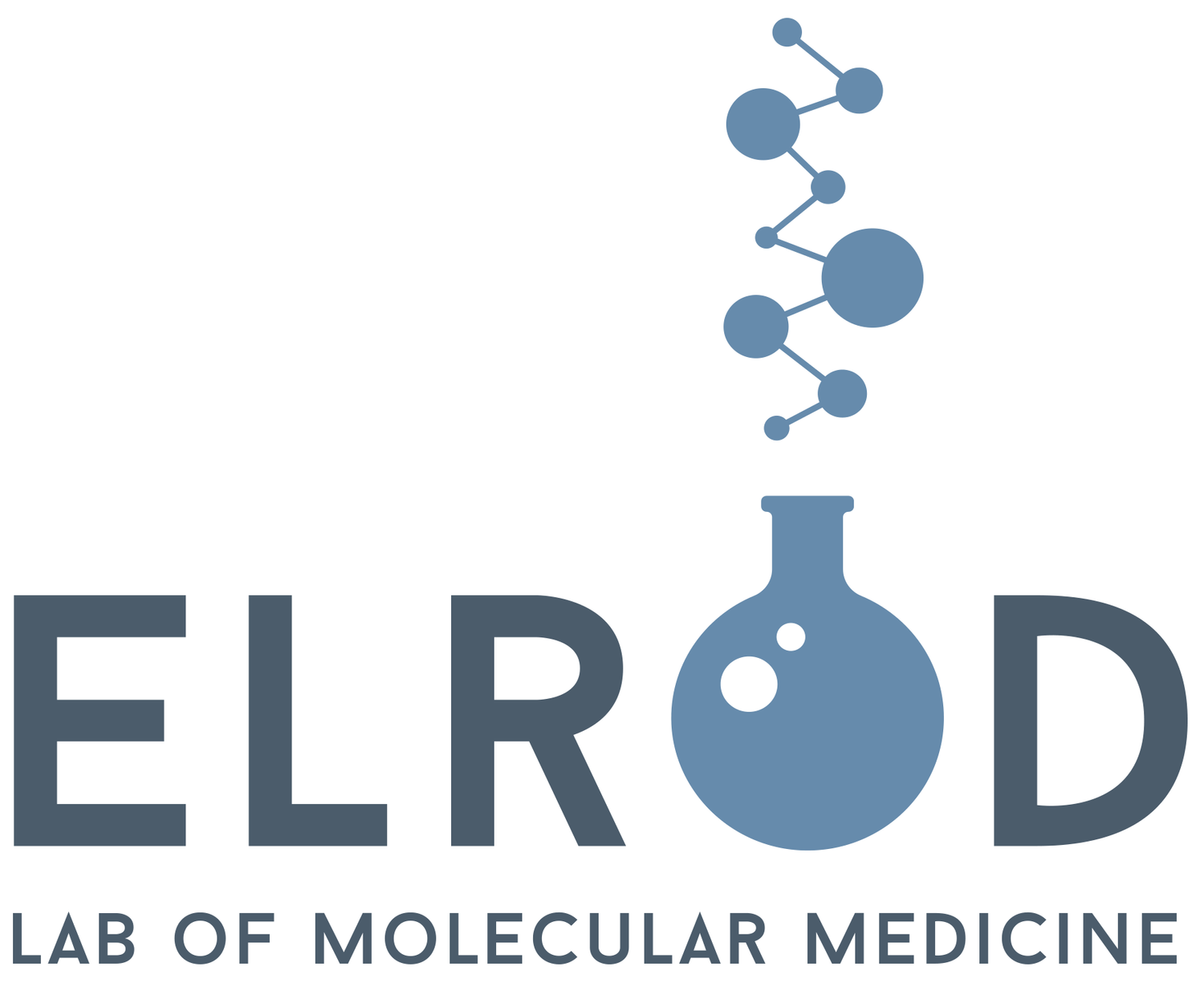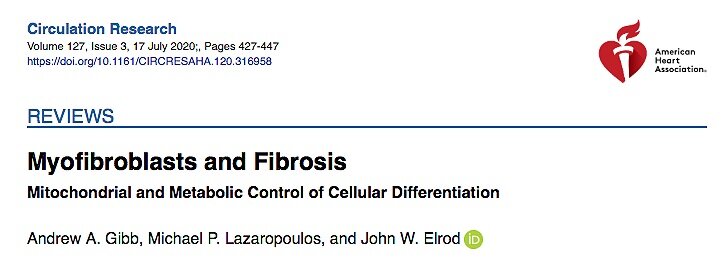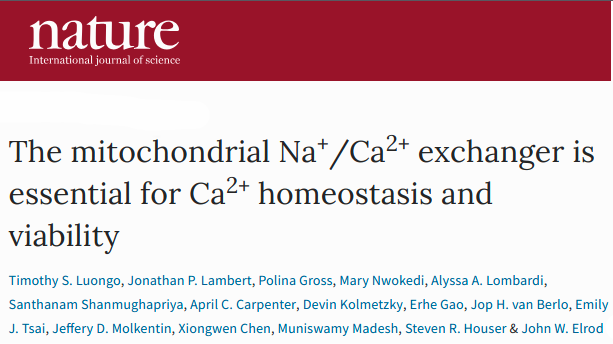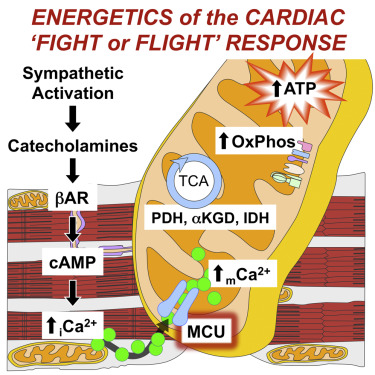Michael received a Ruth L. Kirschstein National Research Service Award (F30 MD/PhD Fellowship) for his project “The Role of Acetyl-CoA Metabolism in Epigenetic Regulation of Myofibroblast Differentiation”. Congrats Mike!
Pooja Jadiya Awarded K99
Pooja Jadiya was awarded an NIH Pathway to Independence Award (K99/R00) from the National Institute on Aging (NIA) to enable her transition to independent faculty. The project is focused on “The role of mitochondrial calcium uptake in Alzheimer's disease”.
Review published in Circulation Research
Review published in the Journal of Molecular and Cellular Cardiology
Joanne’s review article with lab alumnus Tim Luongo, titled “The debate continues - What is the role of MCU and mitochondrial calcium uptake in the heart?” (PMID:32353353) was published in the June 2020 issue of Journal of Molecular and Cellular Cardiology as part of a Special Issue, Unsolved mysteries and controversies of mitochondria in the heart.
Dhanendra Tomar awarded K99
Dhanendra Tomar was awarded an NIH Pathway to Independence Award (K99/R00) from the National Institute of Diabetes and Digestive and Kidney Diseases (NIDDK) to enable his transition to independent faculty. Congrats DT!
Joanne Garbincius Awarded Postdoctoral Fellowship
Joanne was awarded an NIH F32 Ruth L. Kirschstein NRSA Postdoctoral Fellowship for her project on “Molecular Modulation of the Mitochondrial Na+/Ca2+ Exchanger as a novel therapeutic target for heart failure”. Congrats Joanne!
COMMENTARY published in Expert Opinions on Therapeutic Potential OF TARGETING MCUB
mitochondrial calcium exchange links metabolism, with the epigenome to control cell differentiation
Alyssa’s thesis work was published in the October issue of Nature Communication.
"Our experiments show that the accumulation of fibrotic cells results directly from mitochondrial calcium-dependent genetic reprogramming involving α-ketoglutarate, which changes the structure of chromatin, or DNA packaging - a phenomenon referred to as epigenetics, that is important in regulating gene expression," Dr. Elrod said. This the first time that extracellular signals directly modifying mitochondrial function have been linked to alterations in the cell nucleus for the formation of myofibroblasts.
"The key finding that a change in mitochondrial calcium uptake plays a central role in metabolic and genetic reprogramming presents new opportunities for investigation," explained Dr. Elrod. "We hope that the new pathways we've identified as essential to myofibroblast formation can be manipulated to treat fibrotic disease."
News portals highlighting the work:
A new mechanism regulating the mitochondrial calcium uniporter published in Circulation
Jonathan published his thesis work defining a how MCUB alters the stoichiometry of the uniporter to modulate mitochondrial calcium uptake during stress.
The new research, published in the journal Circulation, identifies MCUB as a promising new target for the treatment of conditions that feature calcium overload and cell death – conditions that include heart failure, heart attack, stroke, and neurodegeneration.
“MCUB fine-tunes calcium uptake by mitochondria in injured heart tissue, in an attempt to limit calcium overload, which is a major contributor to cell death, particularly following a heart attack,” explained John W. Elrod, PhD, Associate Professor in the Center for Translational Medicine at the Temple University Lewis Katz School of Medicine and senior investigator on the new study.
Lambert JP, Luongo TS, Tomar D, Jadiya P, Gao E, Zhang X, Lucchese AM, Kolmetzky DW, Shah NS, Elrod JW. MCUB regulates the molecular composition of the mitochondrial calcium uniporter channel to limit mitochondrial calcium overload during stress. Circulation. 2019 Sep 19. 10.1161/CIRCULATIONAHA.118.037968
News portals highlighting the work:
A new hypothesis for Alzheimer's disease progression published in Nature Communications
In the labs first foray into neurodegeneration, we report that alterations in mitochondrial calcium exchange proceed histopathology and cognitive decline in multiple Alzheimer’s disease (AD) models. The Pooja Jadiya led study also showed that these same mitochondrial alterations occur in the brains of patients diagnosed with sporadic AD. Her work has garnered numerous awards and been featured by numerous news outlets.
Jadiya P, Kolmetzky DW, Tomar D, Meco AD, Lombardi AA, Lambert JP, Luongo TS, Ludtmann MH, Praticò D, Elrod JW. Impaired mitochondrial calcium efflux contributes to Alzheimer’s disease progression. Nat Commun. 2019 Aug 29
A few of the news stories:
Dhanendra Tomar receives AHA Career Development Award
DT, a senior postdoc in the lab, was awarded an American Heart Association Career Development Award for his proposal to define how mitochondrial structure is regulated in the context of ischemia-reperfusion injury. With this award DT will be transitioning to faculty position in the near future.
Andrew Gibb Awarded NIH F32
Andrew Gibb was awarded a postdoctoral fellowship (F32) from the NIH to study “Metabolic Control of Cellular Differentiation and the Fibrotic Response.”














